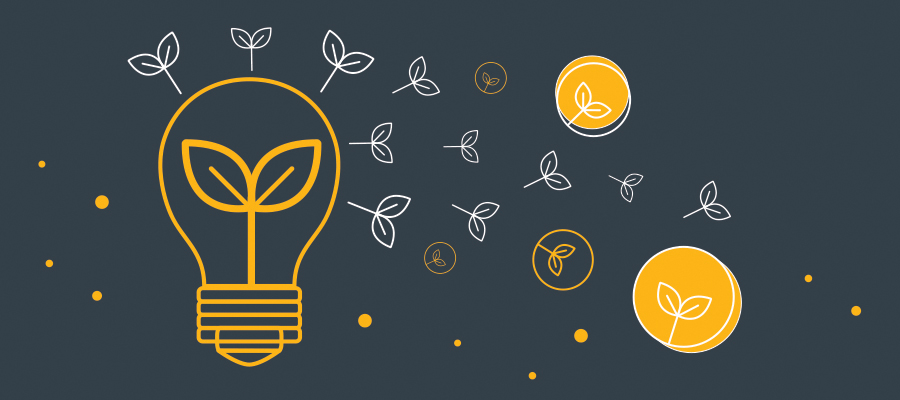In this post Taryn Murray, Knowledge Exchange and Impact Coordinator in Edinburgh Research Office, breaks down the meaning of Research Impact in relation to the ESRC Impact Acceleration Account and provides tips on designing your impact project.
What?
What do we mean by research impact? In essence, it is about making the world a better place. In other words, ask yourself, “What difference do you want to make with your research?”
The University of Edinburgh has funding from the Economic and Social Research Council (ESRC) to accelerate the impact of social science research through the Impact Acceleration Account (IAA).
The Economic and Social Research Council (ESRC) defines research impact as “the demonstrable contribution that excellent social and economic research has on society and the economy, and its benefits to individuals, organisations or nations”.
A fundamental aspect of IAA grants is that they are carried out in conjunction with research users outside the University including one (or more) external organisations who act as co-applicant(s). These collaborations enable knowledge exchange and bring mutual benefits to researchers and the organisations they work with, leading to positive societal and/or economic change.
So What?
IAA projects should be designed as self-sustaining. In other words, once a project has ended, it should have a momentum of its own to continue to make a difference. This broader, longer term impact is achieved through a number of outcomes that result from specific outputs and activities.
There are a range of activities that can be embarked upon. They include, but are not limited to, seminars, workshops, various forms of engagement – policy, public, community – and could also involve development of tools and resources. The key is to design activities that are going to help you achieve the outcomes you seek.
What do we mean by outcomes? They represent a change or difference you want to make to benefit a specific group of people, so their needs should to be considered from the outset. Sometimes grant applications or systems don’t differentiate between outcomes and impact. For IAA grants, we see outcomes as a more immediate, possibly (though not necessarily) measurable change, whereas impact is the larger-level, longer-term difference you will make in the world.
In the process of working towards your outcomes, you may develop a set of tangible outputs from your activities. These could include, but are not restricted to things like documents, websites, toolkits and training materials, and possibly even something to be commercialised, such as an app.
For example, you might see a positive change in circumstances for a group of people (impact), arising from a change in policy (outcome) that arose from workshops and external engagement (activities) from which you developed policy briefings (outputs) that were shared and adopted.
So you’ll want to embark on some carefully considered activities, with some tangible outputs, leading to meaningful outcomes. The result? A demonstrable difference that research makes to society.
Just as you seek to effect change, be open to it yourself and remain flexible. It is important to recognise that the above process is not strictly speaking a linear one. Outcomes may happen tangentially to certain outputs. They may also lead to further activities or result in specific outputs. Similarly, some kind of impact may act as a catalyst for new activities and the cycle continues. Changes and effects may vary in significance throughout the iterative process, and have a compounding, snowballing effect. That’s all part of the overall impact.
Now What?
Our 2022 IAA call has just opened and we invite applications from all academic staff who have research as part of their contracts. Since the IAA is ESRC funded, your underpinning academic research needs to be majority social science, even if only narrowly so. There is up to 20k available per project.
We encourage you to think about IMPACT when putting together your IAA application:
I – Impact
What is the clear societal and/or economic impact you want your project to have?
How to build engagement and impact into research (University of Edinburgh access only)
M – Management
How will you manage your project to keep it on track and thereby achieve the desired impact?
How will you manage to capture your project’s impact?
How to capture and demonstrate research impact (University of Edinburgh access only)
P – Partnerships
What is the demonstrable pull from any external partners with whom you would like to work?
How will you work with partners in a reciprocal, mutually respectful way?
A – Alignment
How does your underpinning research align with the IAA aim of accelerating the impact of social science research?
How do your planned project activities and outputs align with your intended outcomes, leading to your aspiring impact?
C – Communication
How will you facilitate effective communication with internal and external members throughout the project?
Thinking ahead, how will you communicate the impact of your project? What evidence of impact will you gather along the way that can be shared with colleagues across the university, at project end?
T – Testing
Have you tested your idea on someone? Would your application make sense to someone without a PhD from outside the University?
Further information
Find more information about the IAA 2022 call in our Engagement for Impact Hub, including application form, guidance document and FAQs.
ESRC Impact Accelerator Account Grants University of Edinburgh information and resources (University of Edinburgh staff access only)
Social science disciplines – Economic and Social Research Council (ukri.org)



